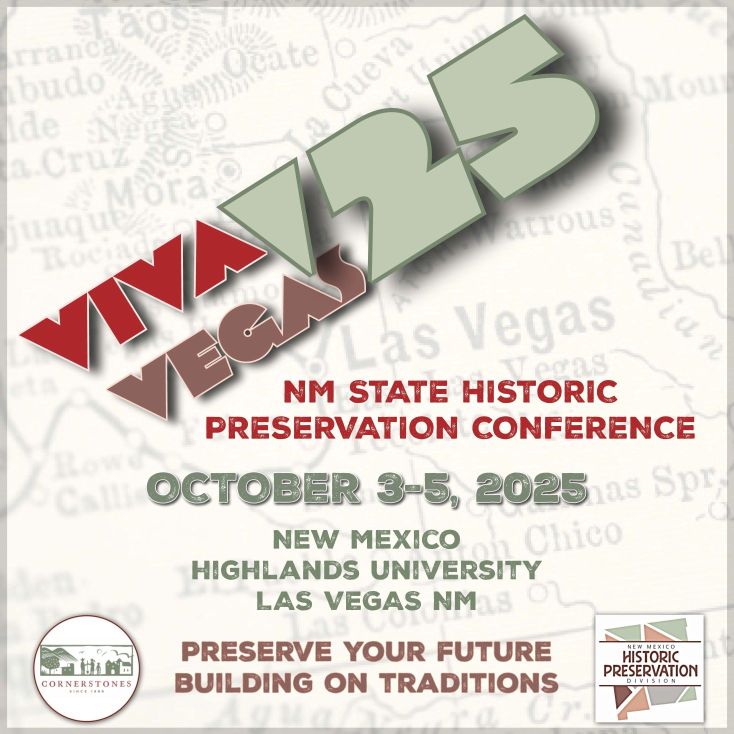
New Mexico Historic Preservation Conference
Details
About the event
The conference will feature speakers on many aspects of historic preservation including relevance, sustainability, affordable housing, gentrification, cultural preservation, preservation law, funding resources, case studies and hands-on demonstrations. Tours of cultural properties in Las Vegas and surrounding areas will also be featured.

PRESERVE YOUR FUTURE BY BUILDING ON TRADITIONS - VIVA VEGAS '25!
Friday, Saturday, and Sunday, October 3, 4, and 5
The conference will begin each day at 8:00 – 9:00 with breakfast for registered participants, with sessions (both panel presentations and speakers) beginning at 9:00 am. Most sessions end around 4:00 or 5:00 pm and evenings are free.
Early Bird Registration until August 31, 2025 - $250.00 / after that, $300.00
One-day Registration before August 31, 2025 - $125.00/ after that, $150.00
The Conference is being coordinated by Cornerstones Community Partnerships and the New Mexico State Historic Preservation Office (Historic Preservation Division).
The Conference is sponsored by the Las Vegas Citizens Committee for Historic Preservation, New Mexico Highlands University, Luna Community College, the Luna Community College Foundation, the City of Las Vegas, and the Las Vegas Community Foundation.
Questions? Please reach out to HPD at nm.shpo@dca.nm.gov or visit Preserve NM.


